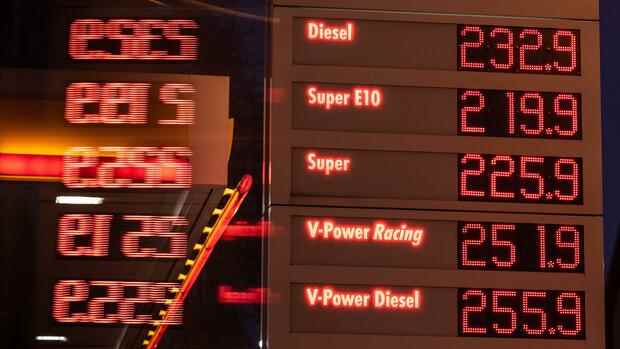The CDU is pushing for greater relief for consumers.
(Photo: dpa)
Berlin It should be a historic Federal Council meeting this Friday. At 9:30 a.m., a video link was planned with Ukrainian President Volodymyr Zelensky. But the speech had to be postponed. But even without Selenski’s appearance, the Ukraine conflict and its consequences will be the focus of attention in the state chamber on Friday.
The CDU-led federal states of North Rhine-Westphalia and Saarland are increasing the pressure on the traffic light government and are demanding further relief from the rising energy prices caused by the Ukraine war. Both countries are launching a Federal Council initiative through which they want to relieve citizens of the high energy costs.
NRW Prime Minister Hendrik Wüst (CDU) told the Handelsblatt: “We need the energy price brake as soon as possible. It would be a big mistake if the federal government left millions of citizens out in the cold.”
Saarland’s Prime Minister Tobias Hans (CDU) also calls for relief: “There has to be something to relieve me, cash checks like in France,” Hans told the Handelsblatt. The rules should apply as long as the high-price phase lasts.
Top jobs of the day
Find the best jobs now and
be notified by email.
The plan from NRW specifically provides for the distance allowance to be increased not from the 21st kilometer, but from the first kilometer, contrary to what was planned by the traffic light. “There must be no first-class or second-class workers,” the motion states. In addition, the distance allowance must be “dynamic” in the future and “in particular also take into account the annually increasing CO2 price”.
Furthermore, the federal government must reduce the electricity tax for private households and for the economy to the European minimum in 2022, “make a substantial reduction in the tax rates on heating oil, natural gas, diesel and petrol” and at least temporarily a reduced tax rate on natural gas and electricity and introduce district heating.
The application from NRW supports the entire black and yellow alliance, including the FDP, which belongs to the traffic light government in the federal government. Saarland will submit its own application because the SPD is part of the government there.
“We want to extend the home office rule so that people don’t have to commute as much. We also think temporary tax cuts are necessary,” said Hans.
Advance through the Federal Council
The CDU Prime Minister called on the federal government to act quickly and submit a draft law. The Federal Council can meet at any time for a special session. “As far as I’m concerned, we can decide next week. People expect something like that.” Allowances for tax returns, for example, are quickly possible.
State elections are due in both Saarland and North Rhine-Westphalia in the coming weeks and months. For Hans and Wüst it is about defending their positions. Re-election is by no means certain at the moment. In Saarland, for example, the SPD was recently ahead in polls.
Another suggestion: the one-time heating cost subsidy for more than 2.1 million people in need of at least 135 euros, which was launched by the federal government, should be higher, according to the SPD. The construction policy spokesman for the traffic light coalition of SPD, Greens and FDP agreed on this, said SPD expert Bernhard Daldrup on Thursday.
“A one-time payment of 135 euros to recipients of housing benefit makes too little a contribution to seriously compensate for the price increases for heating and warmth in recent months,” explained Daldrup. “We are therefore demanding a noticeable increase in the planned subsidy.” A decision on a specific amount should be made after the expert hearing in the Bundestag on Monday.
More: Security of supply: Industry wants to reduce gas consumption
